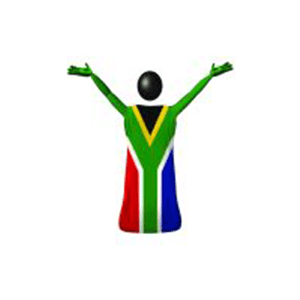By creating an account, I agree to the
Terms of service and Privacy policy
Choose your country and language:
Africa
Americas
Asia Pacific
Europe

SSocial media has managed to change the world of travel completely.
Gone are the days of holidaymakers consulting travel agents for months and perusing the pages of boring travel brochures to find the ideal destination.
According to TripAdvisor, as many as 40% of travellers use social media for travel inspiration and 42% use it to plan their trips. An astounding 72% of travellers share their travel experiences on social media platforms, influencing the travel choices of others.
In the past it took the average traveller weeks, if not months, of consulting travel agents just to decide where to go, and find accommodation. It is estimated that the number of travellers who research travel options on their mobile phones has increased by 51% in the last two years.
Travel and tourism establishments have taken to using social media to advertise specials and holiday packages, and suggest places to see while on holiday. Many travel companies have learnt to take social media platforms seriously, leveraging them and making them work to their benefit.
“Twitter conversations happen seconds apart and travellers are able to tag establishments, letting them know about their experience, which could be anything from “I’m absolutely loving the treatment @Hotel1” to “I can’t believe our rooms were double booked @Hotel2”"
SSocial listening is a very important part of understanding how to engage with customers. Social listening involves real-time listening to your audience, which include your customers, their networks, and potential customers. It means keeping an eye on social media platforms and taking note of activities relating to your brand and your products, and within your industry. Travellers continuously post pictures of their travel experiences on social platforms, and “check in” at various hotels, attractions and even airports, mostly working in favour of tourism businesses.
Game lodges, popular tourist attractions, and other establishments with Google+, Twitter, Facebook and Instagram accounts, offer travellers the perfect opportunity to refer to their establishment by tagging the place as well as their friends, and sharing their experiences. This helps travel destinations to gain more exposure.
Tourism operators and venues are now also able to interact with their customers in real time. Twitter conversations happen seconds apart and travellers are able to tag establishments, letting them know about their experience, which could be anything from “I’m absolutely loving the treatment @Hotel1” to “I can’t believe our rooms were double booked @Hotel2”
Social media not only helps personalise engagement between customers and travel and tourism operators; it also requires establishments to respond to customer enquiries and complaints much quicker, keeping them on their toes and resulting in better customer service.
Responding to complaints posted on social media pages should be a priority. Establishments should use social media to decrease their response time to customer complaints. With social media platforms, on which interaction is almost always in real time, one should be able to sort out queries within minutes. The longer you take to respond, the more irritated and vocal your customers will become.
Travel brands are also giving the most influential social travellers incentives for spreading the word.
Social media has certainly brought about a change in the concept of word of mouth. Tourists are no longer just sharing information about their holidays with friends and family upon their return; they are sharing experiences as they happen – with friends, family and just about anyone else on their social networks.
It’s hard to see how any travel and tourism establishment can survive these days without the use of social media platforms. And with more and more people using smart phones and mobile technology, it is quite clear that online social platforms are here to stay. The tourism industry needs to adapt to and optimise the changes that social media has brought about, or face huge losses.

